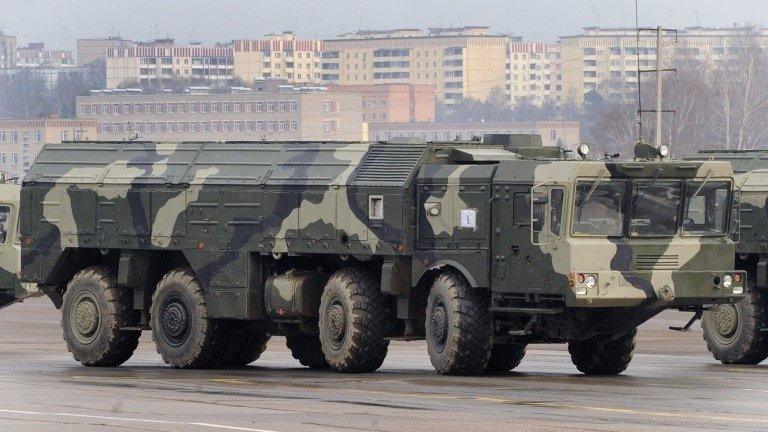Russia lambasts Poland over bikers ban
- Published
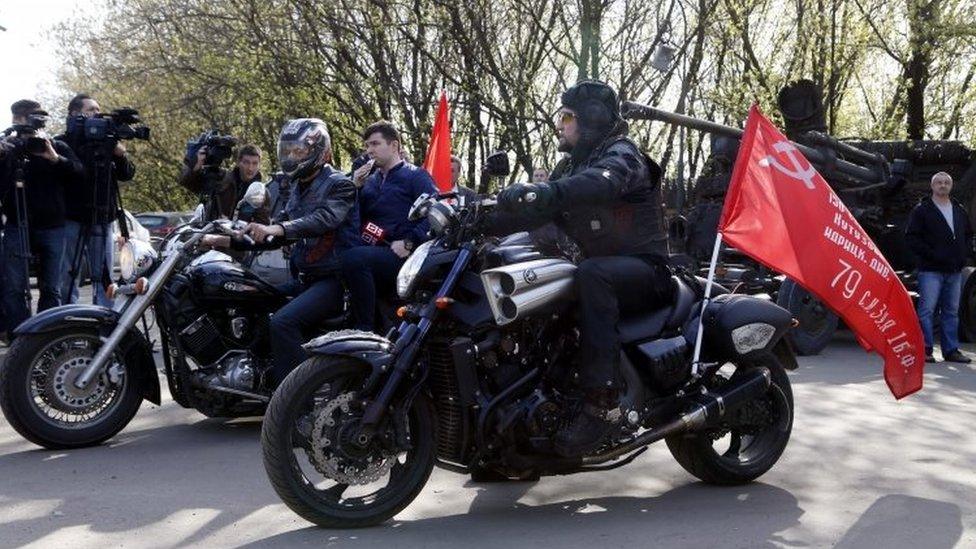
Night Wolves members describe their road trip as a "Victory rally"
Russia has summoned the Polish envoy in Moscow to protest against a ban on Russian bikers from entering Poland as part of World War Two commemorations.
Russia's foreign ministry said it was a "cynical" move aimed at deliberately harming bilateral ties.
Poland said it acted to ensure "the protection of public order".
The bikers - including the pro-Kremlin Night Wolves group - want to ride through Poland as part of a Moscow-Berlin trip to mark the end of WW2.
In a statement (in Russian),, external the Russian foreign ministry said Warsaw's decision "mocked the memory of those killed fighting against fascism" during the war.
Its response comes a day after the Polish side notified Moscow about the ban in a brief statement (in Polish)., external
Last year, Poland refused entry to a similar Russian motorcycle rally. However, a number of bikers then managed to get into the country.
Night Wolves leaders Aleksandr Zaldostanov again pledged that his bikers would be in Berlin on 9 May to raise their Victory flag there.
The planned 6,000km (3,720 mile) road trip would take them through Russia, Belarus, Poland, the Czech Republic, Slovakia and Austria, before reaching the German capital.
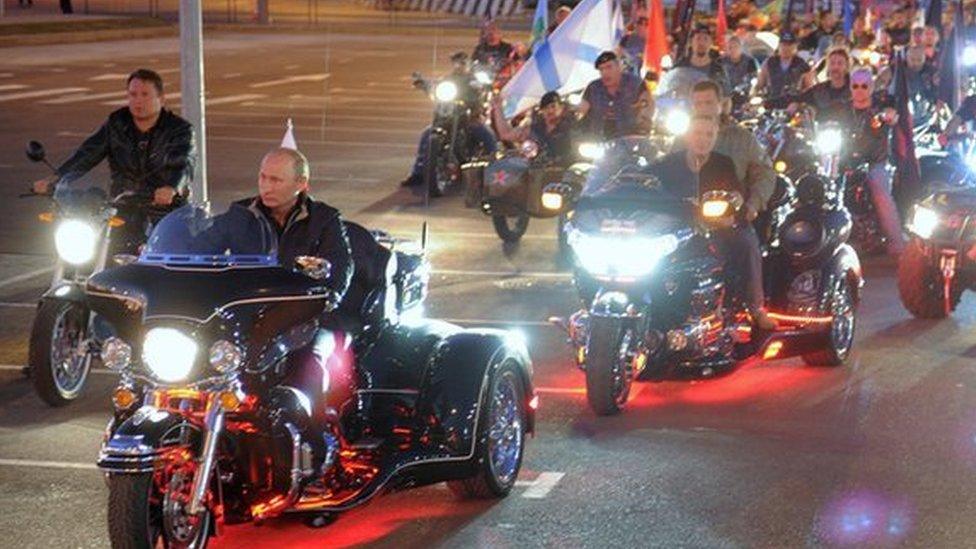
The Night Wolves have received active support from President Putin
The nationalist Night Wolves group has close links to Russian President Vladimir Putin, who has taken part in their rides.
The Night Wolves are subject to US sanctions for alleged active involvement in Russia's annexation of Crimea from Ukraine in 2014, external and for helping to recruit separatist fighters for Russian-backed rebels in eastern Ukraine.

Russian TV outrage - BBC Monitoring
The story features prominently on all the main Russian TV channels.
State-owned Rossiya 1 TV leads its main afternoon bulletin with the summoning of the Polish ambassador.
It highlights the Russian foreign ministry's statement saying the ban is a "particularly cynical and ill-intentioned gesture".
State-owned rolling news channel Rossiya 24 also pegs its report to the foreign ministry's "robust protest" over the ban.
Other TV channels - state-controlled Channel One, Gazprom-owned NTV and privately owned REN TV - report that some 30 bikers have already left Moscow for Berlin.
The hashtag "Dorogi Pobedy" ("Roads of Victory") is among the top 10 trending on Russian Twitter since the mid-afternoon.

Relations between Poland and Russia are currently difficult, the BBC's Adam Easton in Warsaw reports.
Poland has strongly criticised Russia's actions in Ukraine in recent years.
The previous Polish government called last year's planned motorcycle rally a deliberate provocation by the Kremlin, and more than 10,000 Poles signed up to a petition against it on social media, our correspondent says.
In recent months, Moscow has also complained to Warsaw about the dismantling in Poland of several WW2 Red Army memorials.
- Published24 April 2015
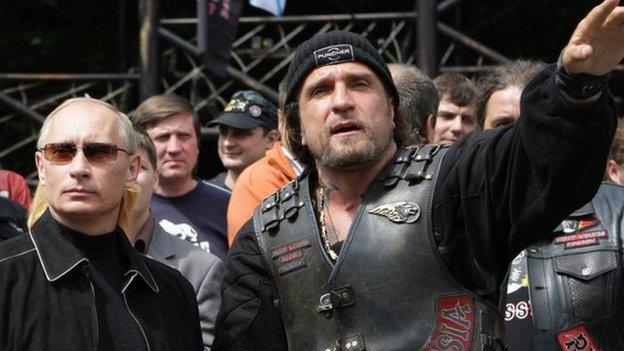
- Published15 April 2015
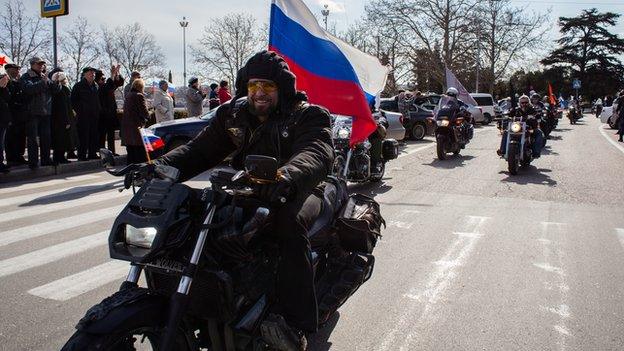
- Published16 December 2013
